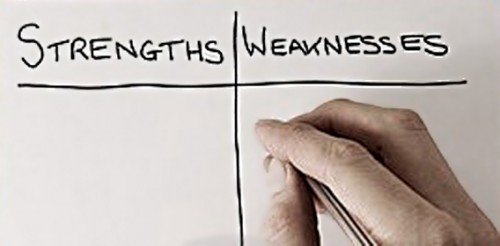
We judge ourselves by what we feel capable of doing, while others judge us by what we have already done.
— Henry Wadsworth Longfellow
And it works both ways!
If you underestimate your potential, or if you ignore your prior accomplishments, you’ll view yourself lower than others do.
If you overestimate your potential, or feel as if your potential has already been actualized when it hasn’t, then you’ll view yourself higher than others do.
Distortions in self-image go both ways. And within a single person, self-image can vary from mood to mood, or context to context.
To enhance your self-image, pay regular attention to what you’ve already done well. This will make you less dependent on others to tell you. And you’ll believe them more, when they compliment you.
Next, never sell yourself short. Never assume you’re incapable of something if prior efforts, or even inner motivation, suggest you might be able to accomplish something. Better to attempt, and attempt, and attempt than to give up for no reason.
Place facts above feelings. That way, your feeling that you can’t do something won’t automatically paralyze you. At the same time, your feeling that you “should” be able to achieve something will not lead you to an unearned sense of confidence or entitlement.
Too many people define self-confidence as a feeling, and a feeling alone. This leads them to think: “If I feel good about myself, then I’m confident.”
But this makes you dependent on your feelings. Like I said, what if your feelings of inadequacy lead you to shoot lower than you should, or you might? Or what if your feelings of over-confidence lead you to expect applause for something of which you’re maybe not capable, at least not yet?
Feelings are important. They are the way to experience life’s values. However, feelings do not, by themselves, tell you what’s true. If you tie confidence to feelings alone, you’re prone to distortion — in either direction.
Confidence requires staying in touch with the facts — about yourself. Like exercise, nutrition, or body building, it cannot be done in one fell swoop. You cannot say, “I’ll do this one mental exercise and then I’ll have confidence.” It doesn’t work that way. The growth and maintenance of self-confidence must be ongoing, and cumulative.
Accumulate and foster self-confidence, like muscles or weight gain/loss. The gradual is the real. Do mental workouts daily, or regularly more days than not. Write down what you do well. Stroke and congratulate yourself for what you earn. Teach yourself to aim higher. Take on daily life with a firm and accurate understanding of who you already are, and who you might yet become.
Demand the freedom to expand and become all you can become; honor the same freedom for others.
Never stop.
Be sure to “friend” Dr. Hurd on Facebook. Search under “Michael Hurd” (Rehoboth Beach DE). Get up-to-the-minute postings, recommended articles and links, and engage in back-and-forth discussion with Dr. Hurd on topics of interest.
